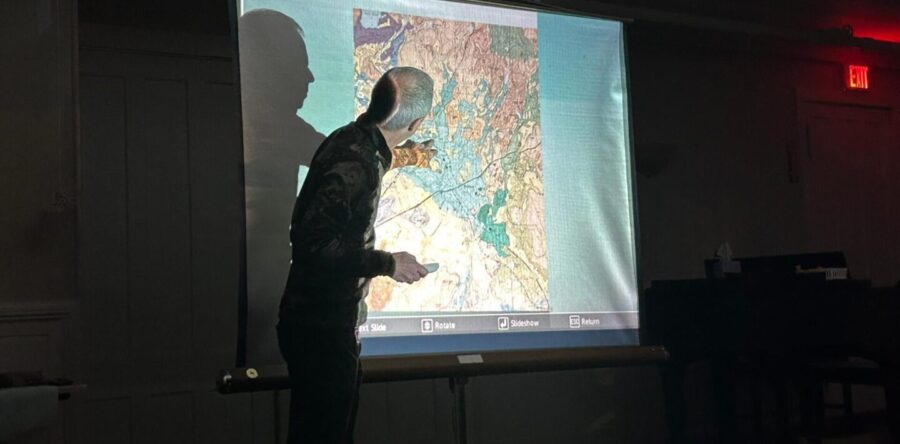By Julia Beauregard
Hometown Weekly Editor
On Monday, November 13th, John Thompson, a prominent archaeologist known for his work in Medfield, delivered a presentation at the First Parish Unitarian Universalist Church on Pre-Colonial Medfield. The event, organized by the Medfield Historical Society in honor of Indigenous People’s Month, included a walk through the history of the land.
Thompson's presentation offered insights into the post-glacial Medfield environment, examining both the geography and geology of the town. The discussion explored clues from that era, focusing on the watershed. Thompson emphasized Medfield's archaeological richness, attributing it to the strategic location between the Charles River and the Neponset River. This positioning provided abundant resources for Indigenous life, supported by a variety of plant and animal species.
Examining glacial depositional environments, Thompson asserted that Medfield has been inhabited for thousands of years, dating back to the time when the ice receded, making the land suitable for human habitation. He estimated this transition occurred approximately 13-15 thousand years ago.
Thompson showcased artifacts such as arrowhead points, hoes, and chisels, shedding light on the lives of the indigenous peoples in the region. These artifacts revealed the evolution of tools and provided insights into the time periods in which native peoples lived. The abundance of artifacts in Medfield, he explained, is attributed to its proximity to water.
Before concluding the discussion, Thompson addressed the potential for an Archaeological Protection District bylaw for the Town, highlighting the absence of such bylaws in Medfield. As a recognized authority in the area's archaeology, Thompson has dedicated twenty-five years to the Medfield Archaeology Advisory Committee and previously served on the Board of Trustees for the Massachusetts Archaeological Society.
The event was a valuable opportunity for attendees to gain insights into the development and changes in Medfield over the past millennia.










